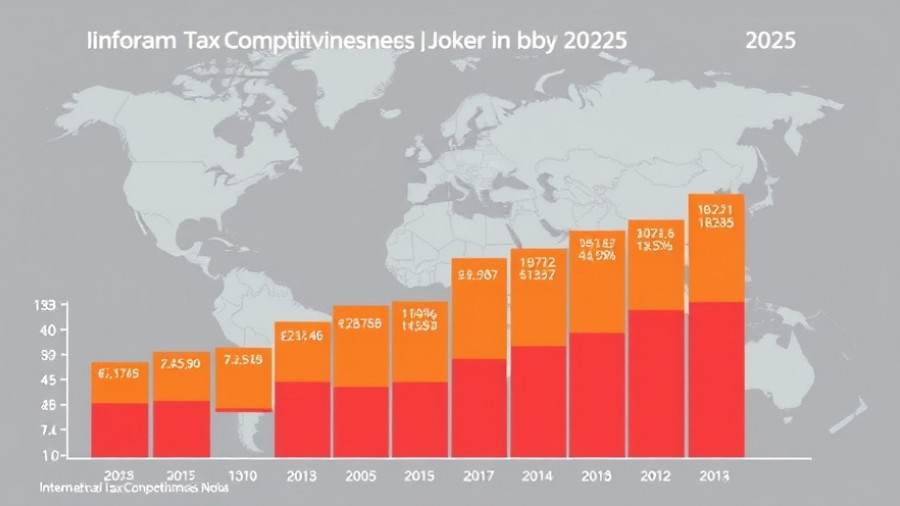
Understanding the 2025 International Tax Competitiveness Index and Its Impact on Global Business
The 2025 International Tax Competitiveness Index (ITCI), released by the Tax Foundation, evaluates the taxation landscape across OECD countries. This year's findings highlight significant shifts in tax structures and policies, showcasing both improvements and challenges faced by various nations. The Index emphasizes the importance of a competitive and neutral tax environment to encourage investment and stimulate economic growth.
The Significance of Tax Competitiveness
The structure of a country's tax code is imperative to its economic performance and influences investment decisions. Countries such as Estonia have consistently topped the rankings due to their simplified tax systems, which encourage reinvestment by taxing corporate income only upon distribution. Understanding these frameworks empowers businesses to navigate potential investment destinations effectively.
Shifts in Global Tax Policies
Notably, the recent reforms initiated by the One Big Beautiful Bill Act (OBBBA) in the U.S. herald a new era of international tax legislation, transforming concepts like Global Intangible Low-Taxed Income (GILTI) into Net CFC Tested Income (NCTI). These changes reflect a global trend where countries are shifting towards territorial taxation, allowing multinational companies to retain more profits without facing double taxation. The 2025 ITCI mirrors these trends, highlighting the varying degrees of effectiveness seen across global tax systems.
Implementation of New Tax Rules
Provisions in the OBBBA, such as softening the Base Erosion and Anti-Abuse Tax (BEAT) and making the look-through rule permanent for U.S. taxpayers, introduce new challenges alongside opportunities. Businesses with international operations must assess their tax posture under these updated regulations, as they adjust compliance and reporting protocols accordingly.
Notable Rankings and Changes
Estonia remains a standout with a perfect score of 100 in the ITCI, leading the way with a corporate tax structure that encourages investment. Conversely, France now ranks at the bottom due to its high corporate tax rates and multiple distortionary taxes, illustrating how poor tax policies can deter economic activity. The U.S. ranks 15th, showcasing a gradual improvement but highlighting ongoing challenges, particularly related to cross-border taxation.
The Road Ahead for Multinational Corporations
The compelling data in the ITCI emphasizes the urgency for companies to pivot their strategies in response to evolving international tax landscapes. Firms must continue to refine their documentation procedures and prepare for compliance with stricter regulations post-OBBBA. The time to reassess tax strategies is now, as businesses that navigate these complexities effectively will emerge positioned for growth in an increasingly competitive global market.
 Add Row
Add Row  Add
Add 

 Add Row
Add Row  Add
Add 



Write A Comment